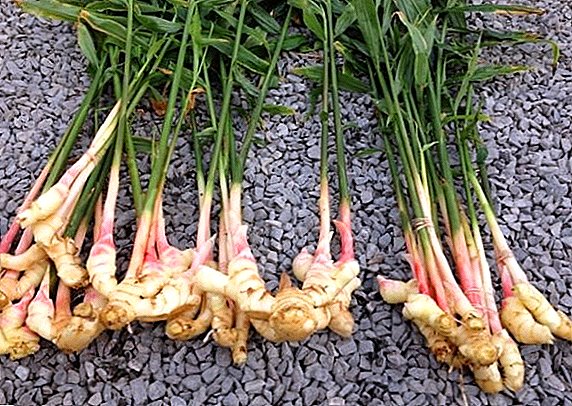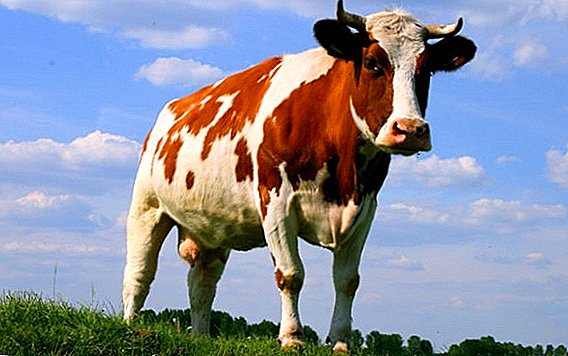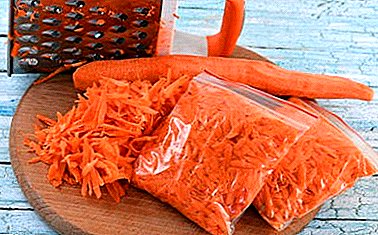 Supermarkets offer us a diverse selection of herbs and spices, but many housewives prefer to grow them themselves. If you have a plot, why not try? With minimal cost, you will receive not only a harvest of fresh greenery, but also great pleasure, caring for the growing plants and waiting for the result. In this article we will talk about arugula and how to grow it in the country or near the house.
Supermarkets offer us a diverse selection of herbs and spices, but many housewives prefer to grow them themselves. If you have a plot, why not try? With minimal cost, you will receive not only a harvest of fresh greenery, but also great pleasure, caring for the growing plants and waiting for the result. In this article we will talk about arugula and how to grow it in the country or near the house.
Arugula: description and biological features
When buying greens or seeds, we can sometimes notice that a plant such as arugula may differ in appearance and taste. Plants grown from seeds with the same name can also be dissimilar and unlike the image from the package. To explain this fact is simple: under the name of "arugula" in the field of trade means two plants, "relatives" of the cabbage family.
The first plant - Indow sowing campaign (name, adopted in biological literature), eruka sowing campaign (name in Latin) or, in fact, arugula. This annual plant has a height of 20-60 cm. The stalk of arugula is branched, sometimes pubescent, the leaves are dark green, broad and with teeth. Yellowish flowers become almost white with purple veins.  The second plant is a two-leaved two-row of leaves, which is often referred to as "wild Italian arugula." Its leaves are narrow and strongly dissected, and the flowers are yellow. The taste of the leaves of a two-faced is more acute than that of the Indau. Dvoryadnik differs in that it can grow after cutting and give re-harvest. Having survived the winter, he again gives greens in early spring. These two plants have similar properties, and the agrotechnology of their cultivation is the same.
The second plant is a two-leaved two-row of leaves, which is often referred to as "wild Italian arugula." Its leaves are narrow and strongly dissected, and the flowers are yellow. The taste of the leaves of a two-faced is more acute than that of the Indau. Dvoryadnik differs in that it can grow after cutting and give re-harvest. Having survived the winter, he again gives greens in early spring. These two plants have similar properties, and the agrotechnology of their cultivation is the same. 
Did you know? The name "eruka" in Latin means "caterpillar". The name "two-row" - a literal translation of the Latin name Diplotaxis, which gave the plant the discoverer Augustin Piram Dekandol, it displays a characteristic feature of the plant - the arrangement of seeds in 2 rows.
Growing arugula in the open field
Planting arugula in open ground is carried out seedling or seedless.
Sowing dates and soil requirements
 For cultivation of arugula in the open ground is characterized by planting dates from late April to mid-August. Arugula loves warmth, but tolerates cold: it can withstand short-term frosts down to -7 ° С. To get fresh greens all summer, the seeds are sown several times per season, taking a break of 2 weeks. The most tasty and healthy leaves of arugula, which is 25-50 days. For growing seedlings, seeds are sown in late March - early April. A site with moderate lighting and neutral, slightly acidic or alkaline soil is suitable for arugula. In the sun, its leaves become hard and bitter, lose their color and smell in the shade.
For cultivation of arugula in the open ground is characterized by planting dates from late April to mid-August. Arugula loves warmth, but tolerates cold: it can withstand short-term frosts down to -7 ° С. To get fresh greens all summer, the seeds are sown several times per season, taking a break of 2 weeks. The most tasty and healthy leaves of arugula, which is 25-50 days. For growing seedlings, seeds are sown in late March - early April. A site with moderate lighting and neutral, slightly acidic or alkaline soil is suitable for arugula. In the sun, its leaves become hard and bitter, lose their color and smell in the shade.
Important! The species of the plant can be determined by the appearance of the seeds: dvoryadnika they are very small, similar to poppy (1.1-1.3 mm). Seeds Indow sowing - larger, up to 2-3 mm in length.
Good and bad predecessors
Tomatoes, potatoes, carrots, legumes and pumpkin cultures are considered to be good predecessors for arugula.
It is undesirable to plant greens for 3 years at the place where other cabbage representatives grew - cabbage, radish, rutabaga, radishes, turnips, horseradish.
Preparatory work before landing
When it is time to plant arugula in open ground, the soil should be loosened and leveled. If the soil is too acidic, it is chilled: ground chalk, limestone or dolomite flour is added to the soil. Their concentration depends on the acidity of the soil and is 25-60 kg per hundred.
Did you know? In 1 g of Indau seeds there are approximately 350 pips.
Seed plan
 In prepared soil, you need to make grooves with a depth of 1-1.5 cm, between which leave a distance of 30 cm, moisten them and sow the seeds. Seeds placed at a distance of 5 cm from each other. Next, sprinkle the beds with a thin layer of soil. Early crops are covered with foil, which we clean during the day if there is a threat of frost. Shoots appear a week after sowing. A few hours before planting arugula, seeds to improve germination can be soaked in a weak solution of potassium permanganate.
In prepared soil, you need to make grooves with a depth of 1-1.5 cm, between which leave a distance of 30 cm, moisten them and sow the seeds. Seeds placed at a distance of 5 cm from each other. Next, sprinkle the beds with a thin layer of soil. Early crops are covered with foil, which we clean during the day if there is a threat of frost. Shoots appear a week after sowing. A few hours before planting arugula, seeds to improve germination can be soaked in a weak solution of potassium permanganate.
Important! When buying seeds, pay attention to the text on the package. Popular varieties of arugula-indau include Poker, Corsica, Rococo, Sicily. Solitaire, Rocket, Taganskaya Semko, Euphoria is a two-row or so-called "wild rocket". The picture on the package does not always correspond to the specified variety, but if it shows wide leaves - you have a floor in front of you, narrow ones - a two-row root.
Growing technology: arugula plant care
Arugula is an unpretentious plant, after a properly planted planting, further care will be loosening, weeding and watering. The favorable soil temperature for seed germination is 5-12 ° С, for plant growth and development - 18-24 ° С.
How to conduct watering
Watering - a mandatory measure in the care of the plant. If the soil dries up, the leaves of arugula become coarse and get a bitter taste, for salad they will be of little use. Watering is carried out in the morning or in the evening by spraying water with a sprinkler or with a hose placed on the ground.
Weeding and loosening the soil
 If sprouts are thickened, when two leaves appear, they should be thinned. In order for moisture and air to better penetrate the ground, it must be regularly loosened, it is convenient to do this after watering. Due consideration should be given to weeding. After the emergence of seedlings, it is possible to mulch the area with hay or grass, the amount of loosening and irrigation will be reduced.
If sprouts are thickened, when two leaves appear, they should be thinned. In order for moisture and air to better penetrate the ground, it must be regularly loosened, it is convenient to do this after watering. Due consideration should be given to weeding. After the emergence of seedlings, it is possible to mulch the area with hay or grass, the amount of loosening and irrigation will be reduced.
Did you know? Productivity of greens of an indow of a sowing campaign on sq. m - 0.85-1.15 kg, thin-leaved two-row - 0.35-0.69 kg.
How to conduct dressing
As for feeding, there is no consensus. Someone argues that arugula does not need fertilizer, because it accumulates nitrates and harmful substances, someone advises to feed it with a solution of mullein or chicken manure. In any case, if in the fall or in season a little old peat or humus is poured into the ground, there will be no harm. Without dressing in general arugula will also delight the harvest.
Diseases and pests of arugula
The appearance of brown spots on the leaves may indicate damage by peronosporosis, and yellowing of the leaves may indicate a disease with fusarium. Disease prevention - respect for crop rotation and weed control.
Possible pests of arugula are cruciferous flea and cabbage moth, which leave traces in the form of holes on the leaves. For the prevention of pest damage, it is recommended to dig up the ground in preparation of the site, cover the seedlings with non-woven material, sprinkle the plants with ashes, tobacco dust or ground red pepper, and treat with wormwood infusions, potato or tomato tops.
Harvesting: cutting green
 When the leaves of arugula reached 10 cm in length, you can begin cutting the greens. From shoots and before cutting takes about 25 days. Cut the greens need to flowering, then its taste deteriorates. Cut off individual leaves or the whole plant. Several plants are left on the seeds. Eat greens should be immediately, as it quickly fades. Store arugula in the refrigerator for several days.
When the leaves of arugula reached 10 cm in length, you can begin cutting the greens. From shoots and before cutting takes about 25 days. Cut the greens need to flowering, then its taste deteriorates. Cut off individual leaves or the whole plant. Several plants are left on the seeds. Eat greens should be immediately, as it quickly fades. Store arugula in the refrigerator for several days.
Did you know? Arugula seeds can be used in the preparation of hot mustard, seed oil - in canning vegetables.Knowing how to grow arugula in the garden and applying this knowledge in practice, you will be provided with fresh greens all season. Incredibly delicious salads, pizza, pasta with arugula - all these delicious and yet unusual dishes for us can easily be on your table.












